Movies by Staatskapelle Berlin
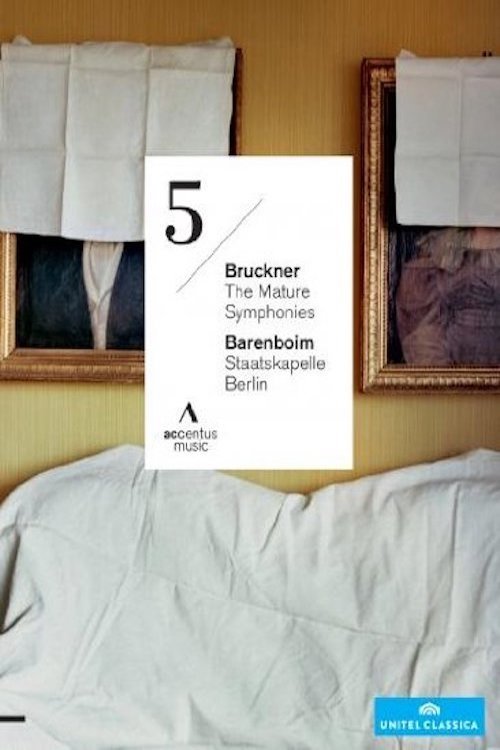
Bruckner Symphony No. 5
The Süddeutsche Zeitung summed up this highly acclaimed performance of Bruckner's monumental Fifth Symphony by saying: Both Bruckners belief in God, as it majestically wells up out of the chorale of the Fifth, and his deeply tragic world view, collide with one another in Barenboims interpretation. The operatic experience of the conductor was almost tangible, revealing the sheer dramatic instrumental battle between Bruckners God and the Devil between heaven and hell without betraying Bruckners unerring sense of striking proportions. The relea...

Bruckner Symphony No. 4
Daniel Barenboim is an expert in exploiting the impact of cyclical performances of composers works: This time he focuses his sharp intellect on all six of Anton Bruckners mature symphonies. Der Tagesspiegel described Barenboim's performance of the works with the Staatskapelle Berlin on six nearly consecutive evenings in June 2010 as a superhuman accomplishment and went on to praise how: His Bruckner is conceived and performed very theatrically, like an opera without words. Bruckners famous Romantic Symphony No. 4 forms the prelude to a spect...

Bruckner: Symphony No. 7
In Anton Bruckner’s 7th Symphony, the listener encounters a music characterized by great spaciousness and profound solemnity, a music which speaks of grief and lamentation, but also of their transcendence. With its monumental architecture and intensity of sound, the symphony has moved listeners ever since its triumphal premiere in 1884. The Guardian calls Daniel Barenboim’s London interpretation “Tremendous … Barenboim and the Staatskapelle seem to have this work in their systems, and the overall impression was of music unfolding organicall...
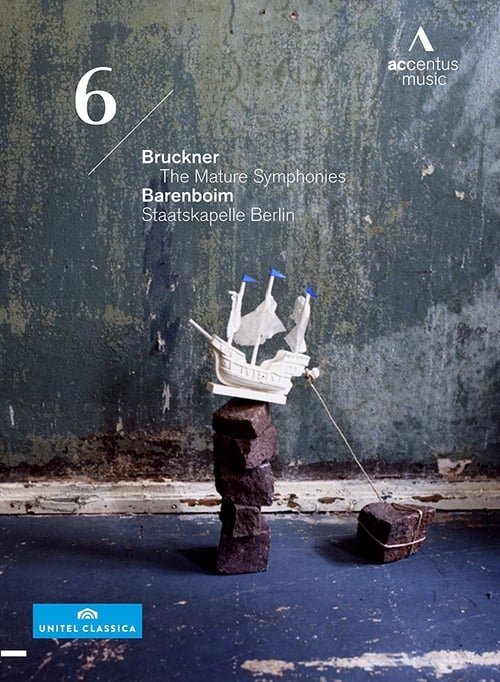
Bruckner: Symphony No. 6
Anton Bruckner’s 6th Symphony was written between 1879 and 1881: a very happy time in his life. Unlike most of Bruckner’s symphonies, the 6th was not revised. Of all his works, this one seems to come from a single source of inspiration. Bruckner himself called it his “boldest” symphony – probably due to its extreme degree of motivic, rhythmic and harmonic originality. This live recording of the seldom-performed 6th Symphony is the next instalment of the acclaimed Bruckner cycle by the Staatskapelle Berlin and Daniel Barenboim. Anton Bruckne...
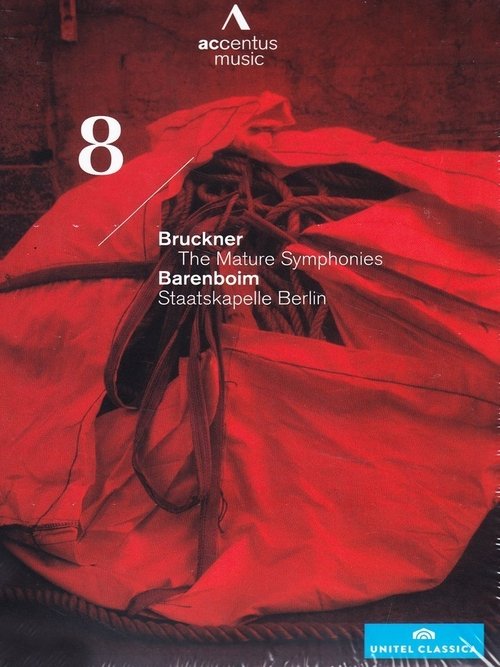
Bruckner: Symphony No. 8
“Clarity was one thing that made this performance a marvel. Another was the flexibility of Barenboim’s speeds…. The flexibility of Barenboim’s tempi meant that Bruckner’s charm – an often overlooked aspect of his genius – shone through, especially in the genial Trio.” (The Telegraph) Bruckner’s 8th is the last symphony completed by the Austrian composer. Many of his contemporaries regarded the symphony as “the pinnacle of 19th century music”. Even today, this monumental work fascinates listeners with its virtuoso orchestral technique, its im...
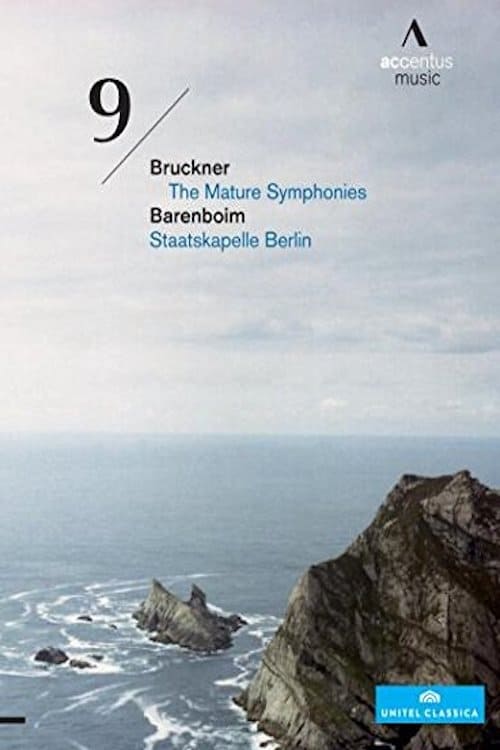
Bruckner Symphony No. 9
With nearly 450 years of tradition, the Staatskapelle Berlin is one of the oldest orchestras in the world. Daniel Barenboim has served as its music director since 1992, and in 2000 the orchestra appointed him Chief Conductor for Life. Having already performed important cycles such as Beethoven, Brahms and Schumann together, Daniel Barenboim and the Staatskapelle turned their focus toward Anton Bruckner's last six Symphonies, performed in the Philharmonie Berlin in the course of only one week in June 2010. This music is more serious and more ...
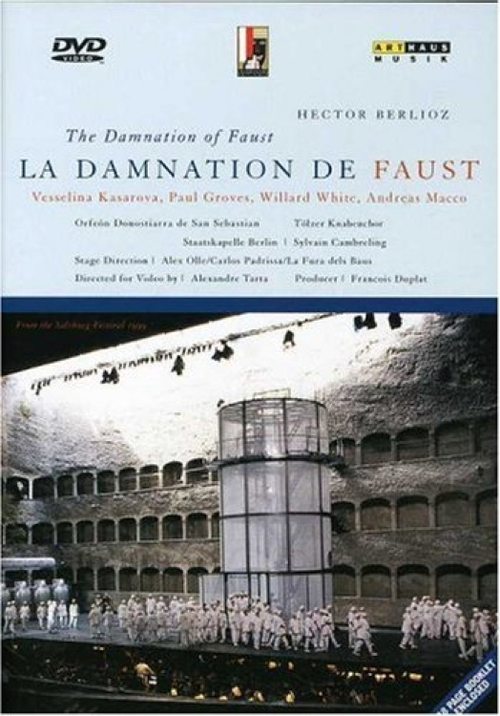
The Damnation of Faust
The three main soloists have voices on a scale that can compete with these flashy production values – White and Kasarova, in particular, sing at a level of intensity that would swamp anything less; the climactic seduction trio has rarely been sung so well or with such an overpoweringly polymorphous eroticism. Cambreling marshals his forces effectively, giving full rein to the work's showstoppers like the "Hungarian March" but not neglecting the subtler less kinetic Gluckian side of Berlioz's vocal writing. Recorded live at the Salzburger Fes...

Gustav Mahler: Symphony No. 2 Resurrection
In 2005, the Staatsoper Berlin and its orchestra, the Staatskapelle Berlin under musical director Daniel Barenboim, celebrated a series of events to celebrate the 80th birthday of French conductor and composer Pierre Boulez. Artistically associated for decades with Barenboim and Berlin, Pierre Boulez is one of today's most distinguished composers and conductors. As part of the celebration, Boulez conducted a performance of Mahler's "Resurrection" Symphony at the Berlin Philharmonie. With his uncompromising approach to the score, Pierre Boul...
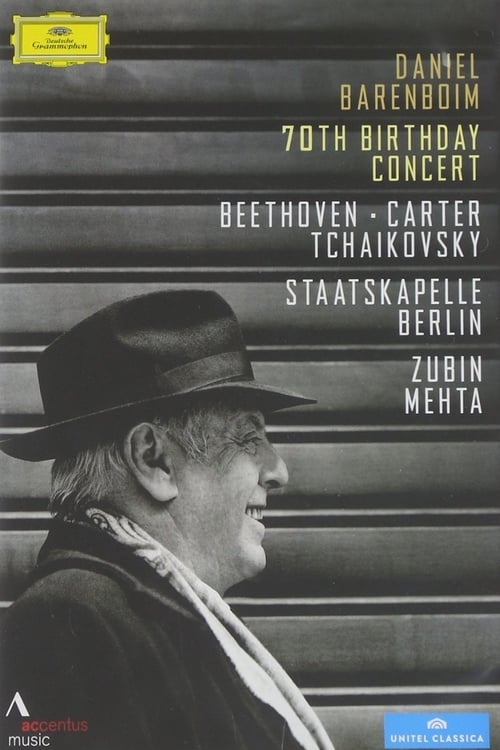
Daniel Barenboim 70th Birthday Concert
With family and friends present, Daniel Barenboim celebrates his seventieth birthday in the company of Zubin Mehta, and the Staatskapelle Berlin. He starts with Beethoven's Piano Concerto in C minor (No. 3) and ends with Tchaikovsky's Piano No. 1 with an Eliot Carter short atonal piece sandwiched between. Both the Beethoven and Tchaikovsky are exquisitely and passionately performed by Barenboim as he commands the piano and dazzles the audience. The structural composition of each comes alive; especially in the 2nd movement of the Tchaikovsky ...